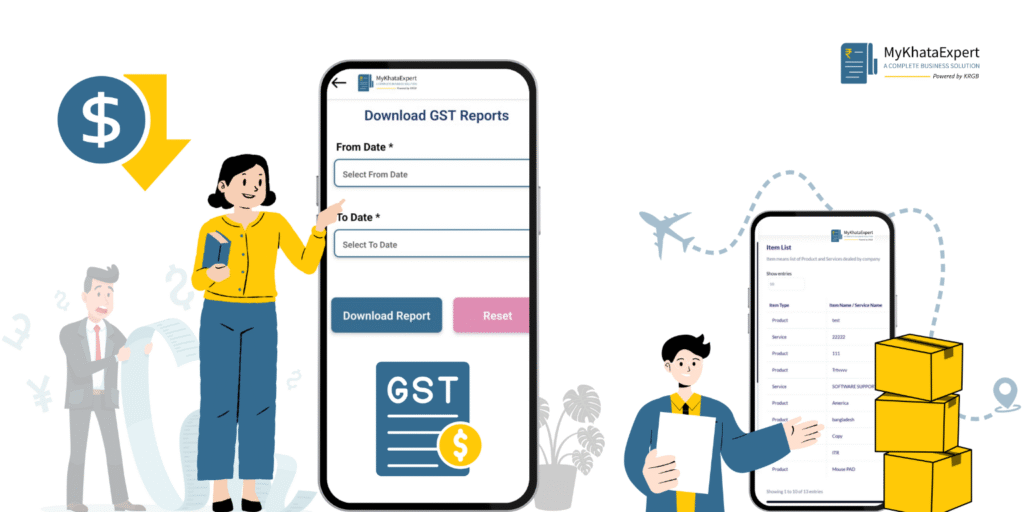Top 5 Challenges Faced by Indian MSMEs and How to Overcome Them

Micro, Small, and Medium Enterprises (MSMEs) are the lifeblood of the Indian economy. With over 63 million MSMEs contributing nearly 30% to India’s GDP and employing more than 110 million people, their significance cannot be overstated. They operate across sectors—from manufacturing and trade to services—and play a pivotal role in fostering entrepreneurship, regional development, and job creation.
Despite their immense contribution, Indian MSMEs face a range of challenges that hinder their growth, scalability, and long-term sustainability. Many MSMEs remain unregistered, informal, or disconnected from organized markets, further compounding these challenges. Addressing them is crucial not only for the well-being of the MSME sector but also for India’s broader economic progress.
In this blog, we will explore the top 5 challenges faced by Indian MSMEs and provide actionable strategies to overcome them.
Challenge #1 - Limited Access to Finance
One of the most pressing issues for Indian MSMEs is limited access to formal credit and finance. Traditional banks often perceive small businesses as high-risk borrowers due to their lack of collateral, insufficient credit history, and informal operations. A 2023 report by the IFC estimated that the credit gap for Indian MSMEs stands at over INR 25 trillion.

Impact
Restricted ability to expand operations or invest in new technology
Cash flow issues and delayed payments to vendors and employees
Inability to meet working capital requirements
Solutions
- Digital Lending Platforms: Fintech companies like Lendingkart, Indifi, and FlexiLoans offer fast, collateral-free loans designed for MSMEs. For example, a small textile manufacturer in Surat improved working capital by using Lendingkart to receive funding within 72 hours.
- Government Schemes: Leverage schemes such as the Credit Guarantee Fund Trust for Micro and Small Enterprises (CGTMSE) that offer collateral-free loans with government backing. MUDRA loans under the Pradhan Mantri MUDRA Yojana (PMMY) are also tailored for micro and small enterprises.
- Improve Financial Documentation: Maintaining clean books of accounts is vital. Tools like MyKhataExpert help MSMEs organize transactions, track expenses, and prepare reports that boost credibility with lenders.
- Invoice Discounting Platforms: Use platforms like TReDS (Trade Receivables Discounting System) that enable MSMEs to discount receivables and get early payments from large buyers.
Challenge #2 Inadequate Technological Adoption
Many Indian MSMEs still operate manually or rely on outdated technologies. There’s a general hesitancy toward digital adoption due to a lack of technical know-how, perceived high costs, and fear of disrupting existing operations. According to a report by NASSCOM, less than 30% of Indian MSMEs use any form of digital tools.

Impact
- Inefficient operations and low productivity
- Inability to scale or compete in the digital economy
- Challenges in managing finances, inventory, and customer relationships
Solutions
- Digital Literacy Programs: Participate in government-backed initiatives like the Digital MSME Scheme, which helps small businesses adopt cloud-based technologies.
- Affordable Digital Tools: Tools like MyKhataExpert provide simple, budget-friendly options tailored for MSMEs.
- Cloud-Based Services: Implement CRMs (like Zoho or Freshsales) or ERPs (like Tally or Marg ERP) to manage workflows and access real-time business insights.
- Example: A food processing unit in Maharashtra increased production efficiency by 30% after adopting inventory software integrated with sales forecasting tools, leading to better stock control and faster turnaround times.
Challenge #3 – Regulatory and Compliance Burden
MSMEs are required to comply with multiple central, state, and local regulations—ranging from GST filings and labor laws to environmental clearances and local body approvals. Many business owners struggle to understand and manage these requirements, leading to non-compliance.
Impact
- Increased operational overhead
- Penalties due to delayed or incorrect filings
- Reduced time for strategic activities
Solutions
- Simplify Compliance: Automate GST filing and invoicing using software like MyKhataExpert, ClearTax, or RazorpayX to reduce manual errors and delays.
- Professional Support: Outsourcing compliance tasks to part-time CAs or using CA-as-a-service platforms like Quicko ensures accurate and timely submissions.
- Leverage MSME-DI Services: District Industries Centres (DICs) offer support for legal and regulatory compliance. Attend workshops and helplines hosted by local chambers of commerce.
- Stay Updated: Follow updates from GSTN, RBI, and MCA portals. Platforms like IndiaFilings and VakilSearch provide alerts on regulatory changes.
- Example: A Delhi-based logistics MSME reduced compliance penalties by 70% after shifting to automated invoicing and conducting quarterly internal audits.

Challenge #4 – Market Access and Competition
Breaking into larger markets remains difficult for MSMEs due to limited brand visibility, traditional marketing approaches, and the lack of access to global platforms. Moreover, they face stiff competition from established players, both domestic and international, who often operate at economies of scale.
Impact
- Limited customer base
- Poor revenue growth
- High customer churn
Solutions
- Sell on E-Commerce Platforms: Platforms like Amazon Karigar, Flipkart Samarth, and Meesho enable MSMEs to reach pan-India customers with minimal setup cost.
- Digital Marketing: Invest in digital marketing channels—like Google Ads, Facebook, or Instagram—to generate brand awareness. Use SEO tools like Ubersuggest or Semrush to boost search visibility.
- Trade Events and Expos: Participate in industry exhibitions and B2B matchmaking events organized by FICCI, CII, and ITPO. Networking here often leads to partnerships and distributor tie-ups.
- Export Promotion Schemes: Register with the India Trade Portal and explore government incentives under the Export Promotion Capital Goods (EPCG) Scheme.
- Case Study: A handicrafts MSME from Jaipur expanded to international markets after listing on Etsy and running targeted campaigns using Canva and Google Ads. The business grew 200% in 12 months.
Challenge #5 – Skill Gaps and Talent Retention
Hiring and retaining talent is a major hurdle for MSMEs. Larger corporations attract top talent with better pay and structured career growth. MSMEs often lack formal HR policies, training programs, or performance incentives.
Impact
- Lower productivity and output quality
- Frequent hiring and training costs
- Difficulty in innovation and scaling
Solutions
- Skill Development Partnerships: Collaborate with NSDC or local ITIs to onboard skilled apprentices. Some MSMEs co-design curricula with training partners to suit industry-specific needs.
- On-the-Job Training: Implement training modules with checkpoints for employees. Pairing new hires with experienced staff ensures smoother onboarding.
- Foster a Positive Culture: Establish a feedback-driven culture, provide recognition programs, and maintain transparency in communication.
- Internal Career Growth: Set up internal learning paths—through platforms like Coursera, Udemy, or local workshops—to upskill existing staff and reduce churn.
- Example: A leather goods MSME in Kanpur improved employee retention by 45% after introducing annual appraisals, internal promotion policies, and a health benefits plan.
The Role of Government and Ecosystem Support
Recognizing the importance of MSMEs, the Indian government has rolled out multiple initiatives:
- Atmanirbhar Bharat Abhiyan: Focuses on making MSMEs self-reliant with measures like collateral-free loans and equity infusion through Fund of Funds.
- Udyam Registration: A simplified online registration that opens doors to benefits like priority sector lending and MSME-specific procurement.
- MSME Sampark & Samadhan: These platforms assist with hiring skilled manpower and resolving delayed payments from government buyers.
- Cluster Development Programme (MSE-CDP): Helps MSMEs share infrastructure and technology in clusters, enhancing competitiveness and reducing costs.
In addition, support from private accelerators, incubators (like NASSCOM 10,000 Startups), and mentorship programs (such as TiE and IIM Innovation Centres) are empowering MSMEs through funding, training, and digital transformation.

MyKhataExpert: A One-Stop Solution for MSMEs
MyKhataExpert is designed as a comprehensive financial and business management platform tailored specifically for Indian MSMEs. It simplifies the complexities of running a small business by integrating key features into a single, easy-to-use solution.
What MyKhataExpert Offers:
- GST Filing Made Simple: Automate and manage all your GST filings with timely alerts and error-free submissions.
- Invoicing and Billing: Generate professional invoices in seconds, track payments, and stay on top of receivables.
- Expense Tracking and Cash Flow Insights: Monitor your daily, weekly, and monthly cash flow with intuitive dashboards.
- Bank Integration: Connect your bank accounts for real-time reconciliation and transaction monitoring.
- Document Generation: Easily create e-way bills, purchase orders, delivery challans, and more.
With a user-friendly interface, localized support, and powerful analytics, MyKhataExpert helps MSMEs become more compliant, financially organized, and digitally empowered.
Real Impact
Whether you are a retail shop in Ahmedabad, a small manufacturer in Coimbatore, or a service provider in Guwahati, MyKhataExpert adapts to your needs. Thousands of businesses across India have already experienced improved productivity and better financial control by using MyKhataExpert.
Conclusion
Indian MSMEs are dynamic, resilient, and full of potential. However, to thrive in today’s competitive landscape, it is crucial to address challenges head-on with the right strategies, tools, and support systems. Improving access to finance, embracing digital tools, simplifying regulatory compliance, expanding market reach, and investing in human capital are not optional—they are essential for sustainable growth.
At the heart of overcoming these challenges lies a proactive mindset and the courage to adapt. Whether you are just starting or looking to scale, digital tools like MyKhataExpert can empower you to streamline operations, improve financial management, and build a strong foundation for the future.
Ready to take your MSME to the next level? Start simplifying your business with MyKhataExpert today and embrace a smarter way to grow!
Related Frequently Asked Questions
Q. What are the major challenges faced by Indian MSMEs today?
Indian MSMEs often struggle with limited access to finance, outdated technology, regulatory compliance burdens, restricted market access, and difficulty in hiring and retaining skilled talent.
Q. How can MSMEs improve their access to finance?
MSMEs can explore digital lending platforms, government schemes like MUDRA and CGTMSE, maintain clean financial records using tools like MyKhataExpert, and leverage invoice discounting platforms such as TReDS.
Q. Why is digital adoption important for MSMEs?
Digital tools improve efficiency, enable real-time tracking, and help MSMEs scale faster. Solutions like MyKhataExpert simplify accounting, invoicing, and compliance, helping businesses save time and reduce errors.
Q. How does MyKhataExpert help Indian MSMEs grow?
MyKhataExpert offers a one-stop platform for invoicing, GST filing, expense tracking, and financial reporting. It simplifies compliance, boosts financial visibility, and empowers MSMEs to focus on strategic growth.

One thought on “Top 5 Challenges Faced by Indian MSMEs and How to Overcome Them”
Comments are closed.